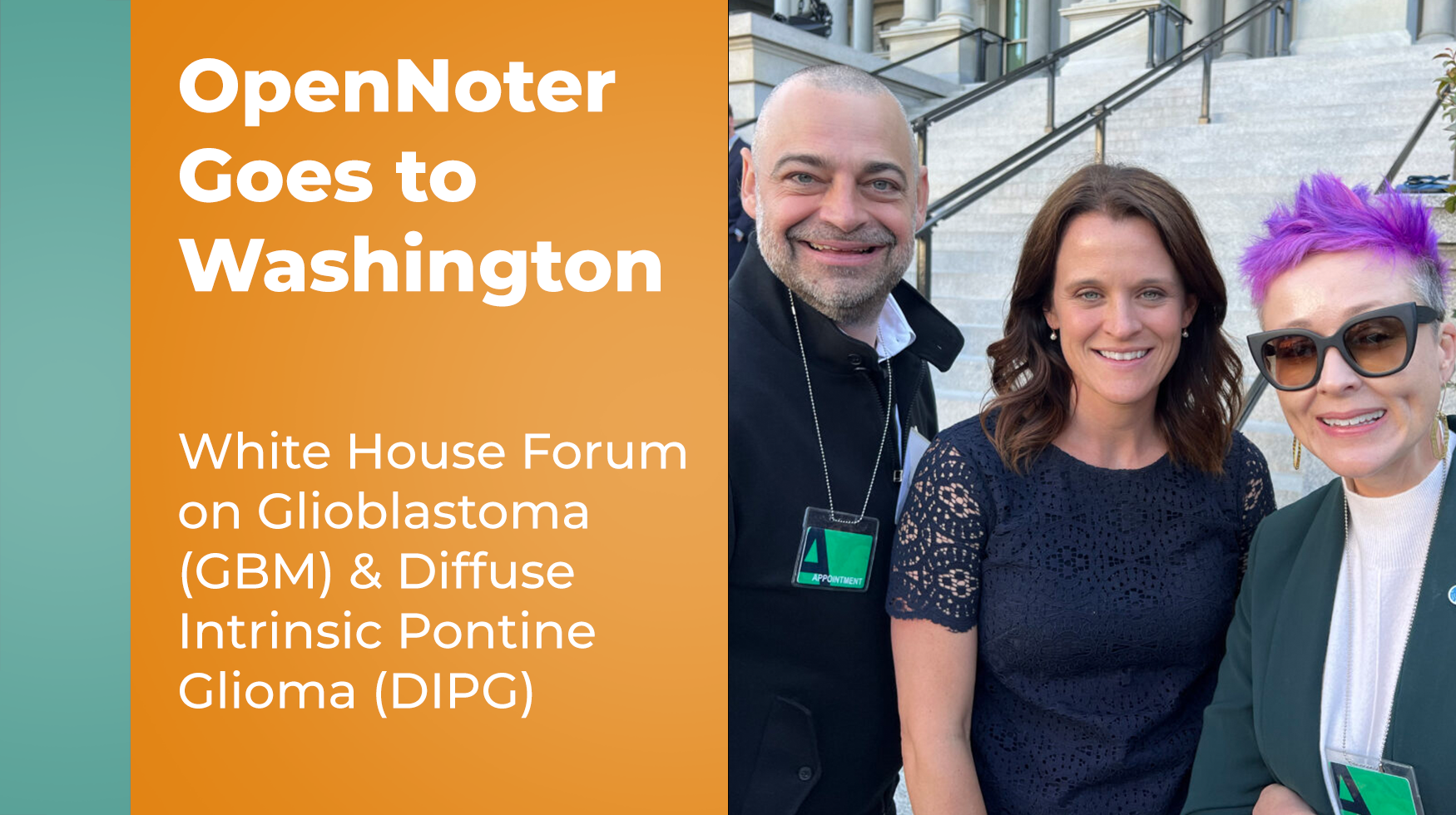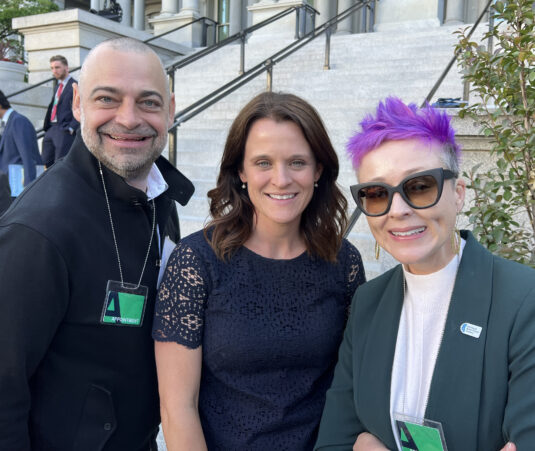

Adam Hayden, Danielle Carnivale, and Liz Salmi at the White House Forum on Malignant Brain Tumors
Last week, Liz Salmi, a brain tumor patient, health services researcher, and a nationally-recognized patient advocate, delivered a compelling address at the White House Forum on Glioblastoma (GBM) & Diffuse Intrinsic Pontine Glioma (DIPG), underscoring the importance of transparency in healthcare and its positive impact on patients.
Salmi, who serves as the Communications & Patient Initiatives Director for OpenNotes at Beth Israel Deaconess Medical Center and Harvard Medical School, highlighted important effects from the implementation of the 21st Century Cures Act. This act, which prohibits medical record “information blocking,” has granted patients free and ready access to their health information, presenting a major victory for all Americans, including those within the brain tumor community.
During the forum, Salmi focused on three ways to drive further advancements in healthcare. First, she called for active engagement of patients and care partners in the co-design of research. Second, she stressed the need to enforce the Cures Act rule on information blocking, ensuring unhindered access to medical records. Finally, Salmi underscored the importance of increasing access to the latest research through open access publishing.
“By involving patients in the research process and fostering transparent communication, we can achieve meaningful engagement and cultivate a larger participant cohort, leading to significant progress in addressing complex healthcare challenges, such as glioblastoma,” stated Salmi.
Drawing from successful examples in other health research areas, including cystic fibrosis and breast cancer, Salmi demonstrated the efficacy of transparent communication and open access data sharing. Additionally, she highlighted the importance of survivorship and quality of life research, advocating for the development of robust support systems for long-term brain tumor survivors.
“The Cures Act has already had a striking impact on advancing transparency in healthcare,” acknowledged Salmi. “It has granted immediate access to health information for all Americans and instigated a cultural shift in healthcare practices. This transformative change is a remarkable achievement that directly benefits patients and merits widespread celebration.”




You must be logged in to post a comment.